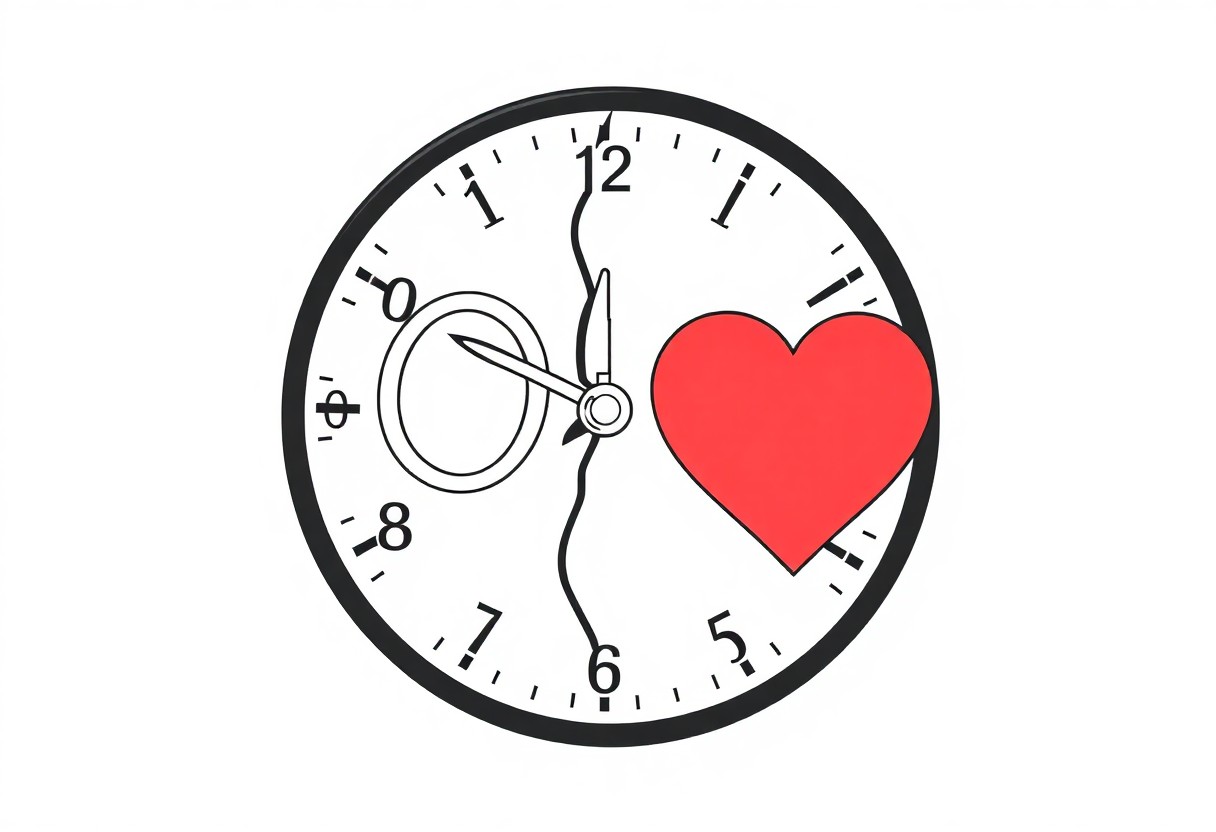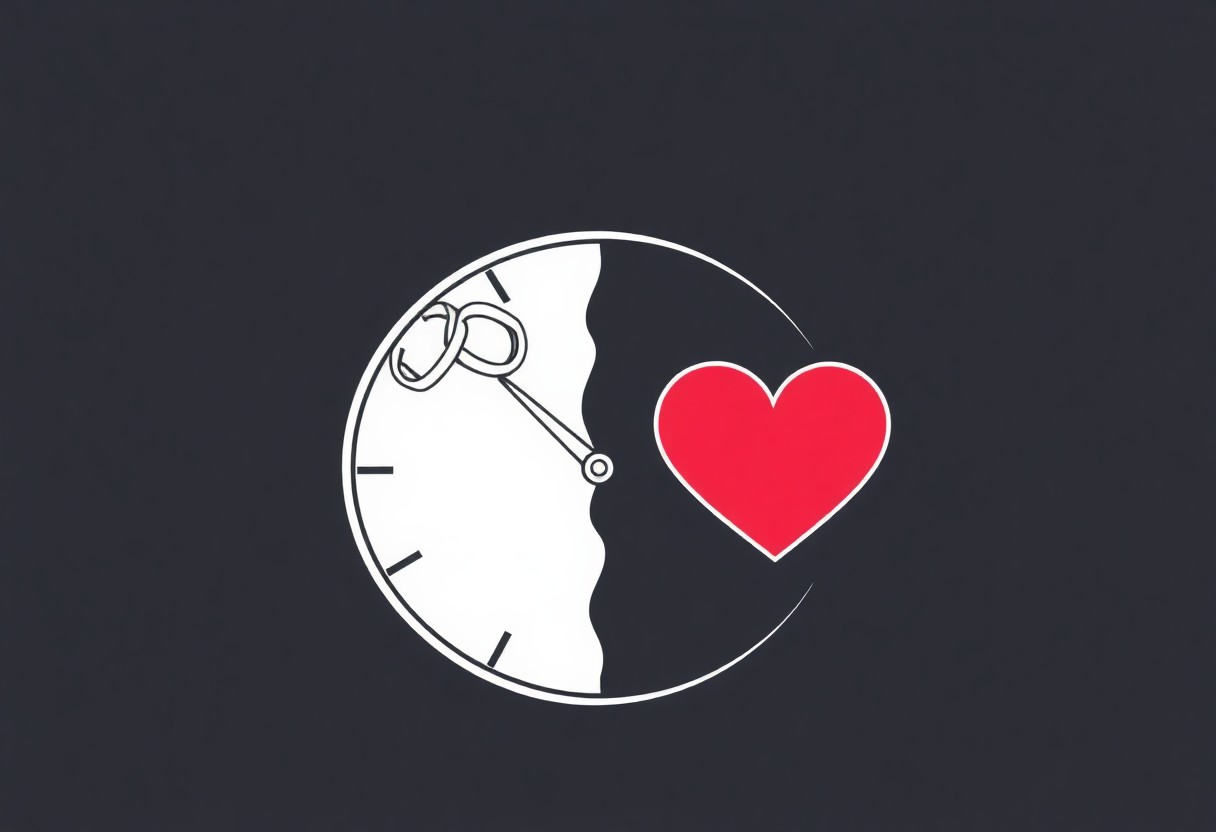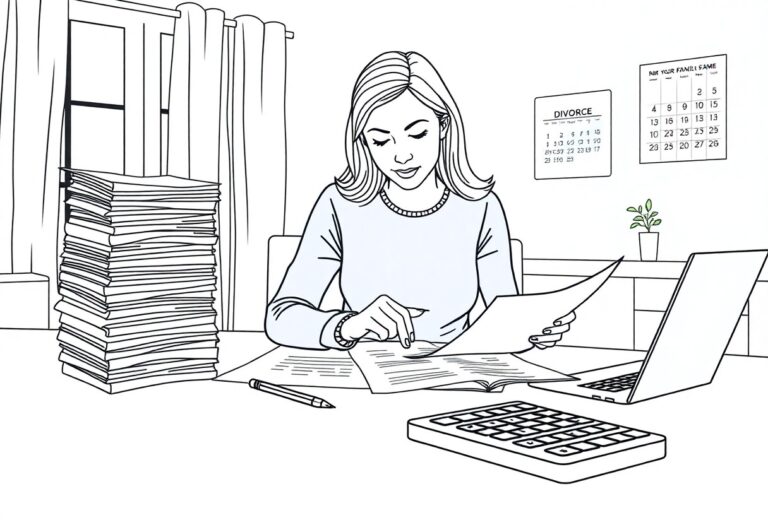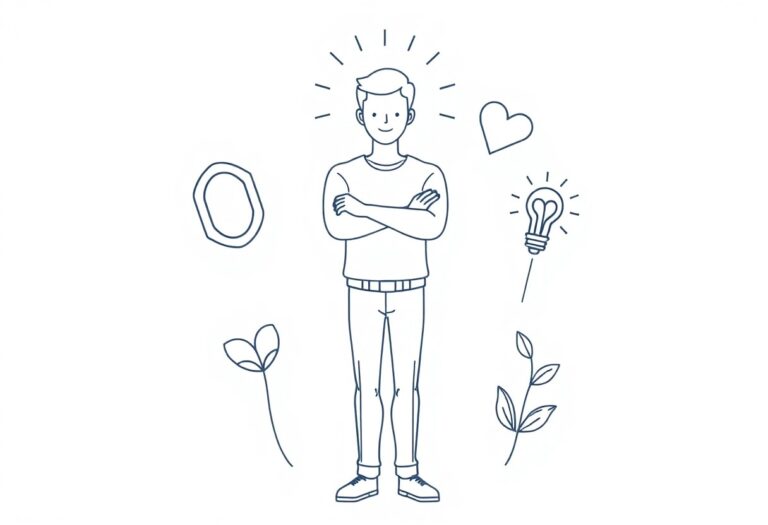How Long Should You Wait Before Dating After a Divorce?
There’s often a lot of confusion surrounding the timeline for dating after a divorce. You may feel eager to reconnect with others, but it’s necessary to take the right amount of time to heal and reflect on your previous relationship. This post will guide you through the emotional considerations that can affect your decision and offer insight into when you might be ready to start dating again. By prioritising your emotional well-being, you can ensure a healthier transition into a new relationship.

Key Takeaways:
- Every individual’s healing journey is unique, so the timing for dating can vary significantly.
- Taking time for self-reflection and emotional recovery can lead to healthier future relationships.
- Consider the circumstances surrounding the divorce; unresolved feelings may influence readiness to date.
- Engaging in social activities and friendships can help ease the transition into dating.
- Communication with potential partners about your emotional state can foster understanding and support.
The Emotional Landscape of Post-Divorce Life
Adjusting to life after divorce can feel overwhelming, with a multitude of emotions constantly shifting within you. Common feelings such as sadness, anger, and confusion mingle with positive prospects for the future. Embracing this emotional landscape is vital to understanding your readiness for new relationships. It’s a process of reflection, where you can learn from past experiences and recognise the growth that comes from adversity.
Recognising Emotional Readiness
Assessing your emotional readiness requires deep introspection and honesty. Consider whether you’ve processed your feelings surrounding the divorce, or if lingering resentment or sadness holds you back. Engage in conversations with trusted friends or a therapist, as they can offer valuable perspectives on your emotional state, guiding you toward clarity.
The Importance of Healing Before Moving On
Entering a new relationship without having fully healed from your past can jeopardise your emotional wellbeing and that of your potential partner. Many individuals find that unresolved feelings from their previous marriage can seep into new connections, leading to misunderstandings and unhealthy patterns. Taking the time to heal enables you to engage more fully and authentically with someone new.
Healing is an crucial phase that can span weeks or even months, depending on your unique circumstances. Engaging in activities such as journaling, seeking therapy, and surrounding yourself with supportive friends fosters emotional recovery. By focusing on personal growth and self-awareness, you set a solid foundation for future relationships. Rushing into new dating experiences may result in a cycle of heartbreak, failing to address core issues from the past. The goal is to emerge not only as a survivor of your divorce but also as an empowered individual ready to embrace a healthy partnership.
Timing Considerations: How Long Is Enough?
Determining the right time to date after a divorce can feel overwhelming. While there’s no one-size-fits-all answer, personal circumstances, emotional readiness, and specific situations all play a significant role. Taking a thoughtful approach allows for a better chance of finding a healthy relationship, leading many to suggest waiting at least six months to a year before actively seeking new connections after the end of your marriage.
The Impact of Divorce Length on Readiness
The duration of your marriage can influence how prepared you feel to dive back into dating. A long-term marriage may require more time to process emotions and adapt to single life compared to a brief union, which may not have as deep-rooted attachments. As a general guideline, if your marriage lasted ten years or longer, giving yourself at least a year can be beneficial for emotional healing and personal growth.
Individual Differences: Personal Experiences and Recovery Rates
Your personal journey is unique and will inevitably shape when you feel ready to date again. Factors such as emotional resilience, support systems, and previous relationships will impact recovery rates. Some may find themselves eager to connect soon after the divorce, while others need more time to heal and reassess their needs before engaging in new relationships.
People process their feelings in diverse ways, and this diversity is vital to understand. For instance, someone who sought therapy during their divorce may find themselves ready to date sooner due to the support they received. On the other hand, those who faced unexpected challenges might take longer to regain their sense of self. The key is to listen to your emotions and assess your comfort level. Don’t rush the process; ensuring you’ve fully worked through the emotional aspects of your previous relationship will create a stronger foundation for future connections.
Navigating the Social Dynamics of Dating Again
Stepping back into the dating arena after a divorce can feel overwhelming, especially when considering the social dynamics at play. You may find that your friends and family have opinions about your dating life, which can add both support and pressure. Engaging with these dynamics means balancing your desires with the expectations of those around you, ensuring you remain true to yourself while exploring new connections.
Friends and Family: Their Role in Your Journey
Your friends and family often play a significant role in your emotional recovery after divorce and can influence your dating decisions. Their support can provide a much-needed safety net, guiding you as you navigate the complexities of dating again. However, you might also encounter well-meaning advice that doesn’t align with your personal timeline or preferences, making it imperative to establish boundaries.
Building a Support Network
Cultivating a supportive network can make a remarkable difference as you probe back into dating. Surrounding yourself with understanding friends, sharing your feelings, and discussing your experiences can foster resilience. Engaging in social activities or joining groups centred around your interests can also help you forge new connections, providing both companionship and encouragement.
Consider reaching out to support groups for divorcees or online forums where you can converse with others who share similar experiences. Such communities offer a space to express your thoughts and feelings freely without judgment, allowing you to glean valuable insights from others’ journeys. As you build this safety net, you may find that sharing both your challenges and triumphs makes the dating process much less daunting.
Setting the Foundations for Healthy New Relationships
Establishing a solid groundwork for future relationships requires introspection and clarity. You must take time to understand your personal values and what you seek in a partner. This involves not just moving on from your past but actively shaping a brighter relationship future by recognising what will foster connection, trust, and mutual respect.
Identifying Personal Goals and Relationship Expectations
Your personal goals and expectations for a new relationship should reflect your growth and experiences. Consider what qualities you value most in a partner and how relationships can support your long-term aspirations. This means being honest with yourself about what you need, whether it’s flexibility, financial compatibility, or emotional support.
Learning from Past Mistakes: A Reflective Approach
Evaluating past relationship patterns can reveal insights vital to your future. Recognising repeating behaviours or unfulfilled needs from your previous marriage can help you avoid similar pitfalls. By confronting these past experiences openly, you empower yourself to make informed choices that lead to healthier connections.
Taking a reflective approach allows you to derive lessons from your past mistakes. This might involve analysing how communication issues or differing values contributed to the breakdown of your marriage. Consider keeping a journal to map out these reflections, which can serve as a powerful tool for personal development, guiding you towards recognising red flags in future relationships and understanding your own triggers. By consistently reflecting on your past, you set a proactive tone for cultivating more rewarding and harmonious connections in the future.
Redefining Self: Embracing Independence Before Partnership
A period of self-discovery following a divorce allows you to embrace your independence, fostering a stronger sense of identity. By focusing on personal growth, you can rebuild your confidence, develop resilience, and carve out a new path that prioritises your values and aspirations. This transformative journey paves the way for healthier future relationships, as you learn to love yourself first and foremost before inviting someone else into your life.
Cultivating Interests and Social Circles
Diving into hobbies and expanding your social circles can enhance your sense of self and fulfilment. Exploring activities that excite you or pursuing passions reignites your zest for life. Joining clubs, volunteering, or taking classes allows you to connect with like-minded individuals, providing not only companionship but also opportunities for personal growth and confidence building.
The Importance of Self-Love and Confidence
Self-love and confidence serve as the foundation for future relationships. Nurturing these qualities enables you to understand your worth and establish healthy boundaries. As you commence on self-reflection, practice acknowledging your strengths and accomplishments. Engaging in daily affirmations or journaling can reinforce positive self-perceptions, empowering you to radiate confidence in both personal and romantic endeavours.
Building self-love includes recognising that you are deserving of happiness and respect. Statistics show that individuals who engage in self-care activities report greater overall life satisfaction and improved relationship quality. By prioritising yourself, you learn to appreciate your unique qualities and develop a stronger emotional resilience. This internal transformation enhances your appeal to potential partners, drawing in those who value your sense of self-worth and independence.
Conclusion
Drawing together the insights on waiting to date after a divorce, it’s crucial to give yourself the time needed to heal and reflect on your previous relationship. Your emotional well-being should be a priority, and only you can determine when you feel ready to embrace new connections. Trust your instincts, consider seeking support from friends or professionals, and ensure that you are moving forward for the right reasons. Ultimately, taking the time you need will lead to healthier and more fulfilling relationships in the future.
FAQ
Q: How soon is too soon to start dating after a divorce?
A: The timing for dating after a divorce varies significantly from person to person. It’s vital to allow yourself sufficient time to process your emotions and adjust to your new circumstances. Many experts suggest waiting at least six months to a year after finalising your divorce before entering the dating scene. This period can provide you with an opportunity to heal, reflect, and understand what you truly want in a future relationship.
Q: What should I consider before dating again after a divorce?
A: Before jumping back into dating, consider your emotional readiness, the impact of your previous relationship on your mental state, and your reasons for wanting to date. It’s advisable to evaluate how well you’ve coped with the end of your marriage and whether you’ve taken the time to rediscover your interests and passions. A stable emotional foundation can greatly enhance your dating experience and improve the potential for future relationships.
Q: How do I know if I’m emotionally ready to date again?
A: Emotional readiness can often be assessed by reflecting on your feelings. If you find yourself feeling happy and content on your own, and you’ve settled into your new life post-divorce, these may be signs that you are ready to date. On the other hand, if you still harbour unresolved feelings about your ex-spouse or are dating to fill a void, it might be wise to delay dating until you feel more secure and self-sufficient.
Q: Is it appropriate to introduce new partners to my children immediately after dating?
A: Introducing new partners to your children should generally be approached with caution. It is typically advised to wait until you are in a serious or committed relationship before making such introductions. This allows you to gauge the stability of the new relationship and protects your children from experiencing potential emotional upheaval. The well-being of your children should always be a priority during this transitional phase.
Q: What if my friends and family think I’m moving on too quickly?
A: It can be challenging if those close to you feel you are rushing into dating after your divorce. Ultimately, your journey of healing and moving on is personal. While it’s beneficial to consider the perspectives of friends and family, it’s vital to trust your own feelings and instincts. If you feel ready to date and have taken adequate time to process your emotions, value your own timeline rather than succumbing to external pressures.







